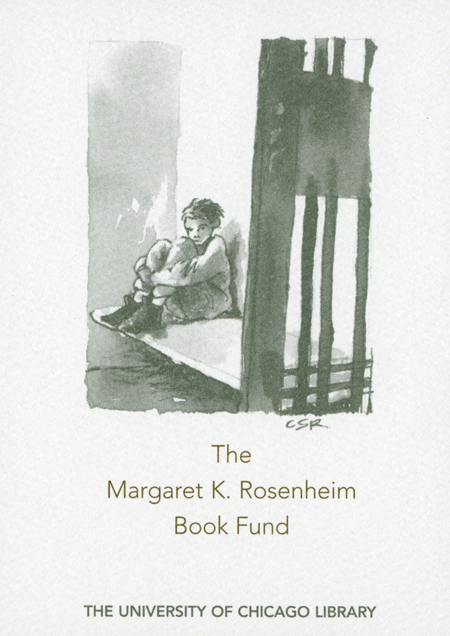Review by Publisher's Weekly Review
Pulitzer-winning journalist Ecenbarger spares no detail in recounting how two rural Pennsylvania judges' schemed to incarcerate thousands of kids in a privately owned juvenile detention center in exchange for millions in kickbacks. In famously corrupt Luzerne County, juvenile court judges Mark Ciavarella and Michael Conahan lobbied for the building of a new juvenile detention center. From 2003 to 2008, Ciavarella then funneled thousands of kids-including nonviolent and first-time offenders-into the new center. In return both he and Conahan were receiving millions of carefully laundered dollars. More troubling was the system's abuse of the children (some as young as 11). Local newspaper reports led to state and federal investigations, and the judges were convicted of racketeering. Ecenbarger lays out the details of the case, emphasizing the very human element of the children who were the victims. Agent: Anita Bartholomew. (Nov.) (c) Copyright PWxyz, LLC. All rights reserved.
(c) Copyright PWxyz, LLC. All rights reserved
Review by Library Journal Review
This expose of judicial indiscretion, greed, and money laundering reads like a thriller. The setting is the Luzerne County, PA, juvenile court system between 2003 and 2008, when two judges mishandled the criminal cases of thousands of children. After presenting a rather unflattering history of the region, citing a "culture of corruption," Pulitzer Prize-winning journalist Ecenbarger describes the background and criminal activities that form the heart of the case. The book is based on 200 interviews and reflects the author's insider knowledge of the scandal, which he covered for the Philadelphia Inquirer. Ecenbarger reviews numerous examples of harsh treatment for minor infractions and violations of juvenile rights granted by the 1967 Supreme Court decision In re Gault. He emphasizes the link between the harsh actions against juveniles in the court system, which tended to have community support, and the major financial gains that private owners of juvenile holding facilities reaped. This book would have been stronger if the actions of other implicated parties had been covered more fully and the analysis broadened into a larger discussion of the pitfalls of government privatization. -VERDICT A solid, shocking work of investigative journalism, recommended for civic-minded general readers and students of juvenile justice issues.-Antoinette Brinkman, Evansville, IN (c) Copyright 2012. Library Journals LLC, a wholly owned subsidiary of Media Source, Inc. No redistribution permitted.
(c) Copyright Library Journals LLC, a wholly owned subsidiary of Media Source, Inc. No redistribution permitted.
Review by Kirkus Book Review
An investigative journalist uncovers the greed and disregard for liberty at the heart of a judicial scandal that had lasting repercussions for children in Pennsylvania. Between 2003 and 2008, Judge Mark A. Ciavarella sentenced thousands of adolescents, many of them first-time offenders, to for-profit treatment centers, often without informing them of their right to counsel. Many in the conservative community not only accepted such mistreatment of juveniles; they wholeheartedly endorsed it. They regarded Ciavarella and his cohorts in the Luzerne County Courthouse as old-fashioned advocates for tough love and zero tolerance. Probation officers, teachers, police and public defenders deferred to a bullying judge who handed down one-size-fits-all sentences while distraught parents watched their children taken away in shackles for minor infractions. Only when a local fraud examiner expressed concern that the judge was taking kickbacks from the treatment centers was a full investigation launched. Pulitzer Prizewinning journalist Ecenbarger (Walkin' the Line: A Journey from Past to Present Along the Mason-Dixon, 2000) details the travesty from several different perspectives: the juveniles and their parents, the corrupt judge and his cronies, and the officials who brought the case to trial. He also discusses the plight of victims of juvenile misconduct, including a woman who was robbed and beaten by four teenagers; when a judge ruled to expunge the records of all juveniles who appeared before Ciavarella during this period, some dangerous delinquents received a clean slate. Ecenbarger effectively exposes the gray areas of justice and makes a convincing case for why juveniles, even those who commit violent acts, deserve to receive fair trials. He also highlights the pioneering work of Philadelphia's Juvenile Law Center, a nonprofit that played a significant role in ensuring that justice finally prevailed: Ciavarella was convicted on 12 counts of racketeering and money laundering, and he was sentenced to 28 years in prison. Though occasionally dry, this sincere expos of wrongdoing will appeal to readers interested in social justice, court reform and children's rights. ]] Copyright Kirkus Reviews, used with permission.
Copyright (c) Kirkus Reviews, used with permission.
Review by Publisher's Weekly Review
Review by Library Journal Review
Review by Kirkus Book Review

